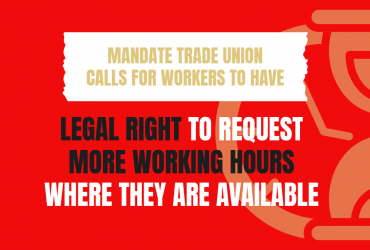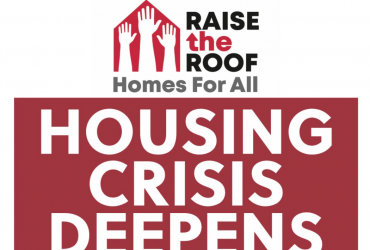How Reykjavik kept the home fires burning…
Friday 8 March 2013By Patrick Nulty TD for Shopfloor magazine
For many people the single biggest investment of their lives is buying a home. Homes aren’t just bricks and mortar – they are also the places where newborn babies are welcomed into the world, where birthdays, communions and other important family occasions are celebrated.
When someone’s home comes under threat due to mortgage arrears, this creates huge financial and emotional pressures. There couldn’t be a more pressing issue for the thousands of families who are struggling to make mortgage payments today.
There are now 180,000 mortgages in some form of distress or difficulty in Ireland.
According to the Central Bank more than 10% of private mortgages are in arrears for 90 days or more. Last September there was some €16.8 billion of Irish mortgage arrears debt.
Clearly this is a problem that needs to be tackled head on by the Government which controls the main Irish banks.
There are two key principles that should underline the way this is approached.
Firstly, no family that is making a genuine effort to make reasonable payments should face eviction from their home.
Secondly, the problem of addressing mortgage arrears should be treated as a national priority in the same way that the Government has focused its attention on re-structuring the Anglo and Irish Nationwide Debt.
If the Government can go to great lengths to ensure that the private debt of banks immersed in irresponsible and speculative lending is paid, then surely they can prioritise assisting families who are in difficulty.
To date the effort by banks in Ireland has been to re-structure mortgages. This means that people have been moved to lower payments based over a longer period (sounds familiar?).
In some instances households have been moved to interest-only payments for a period. However, there has been no serious effort to actually write off part of the debt that is unsustainable and cannot be paid.
This approach will be necessary if the country is to move forward and confidence is to return in our economy. The sooner we come to terms with the part of the mortgage arrears debt that cannot be paid off the better.
In Iceland after the banking crash there were similar problems with mortgage arrears. Some 20,000 households (or one in every five) were in difficulty with mortgage arrears.
Inflation and currency devaluation put many households into difficulty. Like Ireland, debt restructuring was offered to these households but also debt forgiveness.
Loans were written off if they exceeded 110% of a house’s value. So a person who borrowed the equivalent of €500,000 to buy a house that then halved in value could potentially have €225,000 of the mortgage written off.
This helped Iceland move towards recovery. And because only debt that was in negative equity was written off, this system was a fair way of helping struggling families while not giving them any advantage over other families who had managed full repayments in better times.

Protests in Iceland
In addition the Icelandic government is spending the equivalent of €100 million on interest rate subsidies for indebted households. There is also a debt ombudsman that can accompany householders in negotiations with the banks.
Of course these reforms in Iceland had benefits beyond the families who benefited from debt forgiveness.
These measures helped to restore confidence and spending in the domestic economy which was of particular benefit to the retail industry.
Without debt forgiveness these mortgage arrears will continue to have a dampening effect on our economy.
There are plenty of options open to the Government if they wish to make dealing with our mortgage arrears crisis a top priority.
We must demand a swift response that will take pressure off families and households and will speed up a recovery of our domestic economy.





